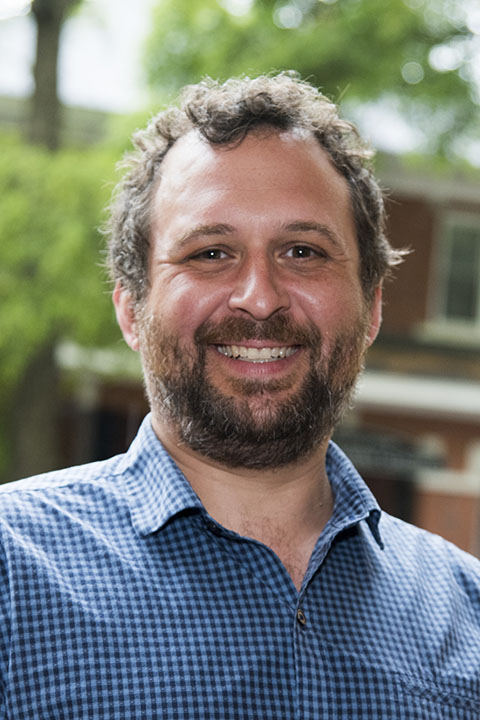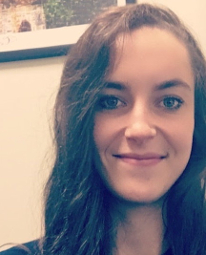Geospatial Core
About the Core
The mission of the Big Data Health Science Center Geospatial Core is to conduct cutting-edge geospatial research and Geographic Information Systems (GIS) science and provide training in the use of GIS, spatial analytics, and other technologies to enhance multidisciplinary health-related research in South Carolina. Innovative research is taking place within the Geospatial Core. Our investigators are currently conducting funded research to quantify the impact of residential location on health outcomes, harness social media data to monitor health trends, identify geographic pockets of social vulnerability and resilience, detect disease outbreaks, and describe trends in access to health care services.
Activity 1
Innovative research is taking place within the Geospatial Core. Our investigators are currently conducting funded research to quantify the impact of residential location on health outcomes, harness social media data to monitor health trends, identify geographic pockets of social vulnerability and resilience, detect disease outbreaks, and describe trends in access to health care services.
Activity 2
Members of the Geospatial Core have diverse content expertise to share with your team. We offer hands-on help and consultation to incorporate GIS and spatial analytics into your business strategy, research project or grant, or data system. Our faculty can also assist your team with spatial data collection, management, analysis and dissemination strategies.
Activity 3
The Geospatial Core hosts seminars, courses, and workshops on GIS and spatial analytics for investigators and trainees across a broad range of disciplines. Check the Events tab for more information and future event dates. Contact our Director for course-related listings offered on the UofSC campus.
Health GIS Scholars Program
The Geospatial Core is pleased to announce the inaugural Health Geographic Information Science (GIS) Scholars Program. This program is being launched to recognize and support two outstanding undergraduate or graduate students who have demonstrated interest, potential, and/or experience in GIS and health research.
Geospatial Core Services
The BDHSC Geospatial Core is available to provide Geographic Information Science (GIS) and spatial consultation to the University of South Carolina and external communities. To learn more about the services provided by the Geospatial Core visit the Geospatial Services Page
Faculty

Melissa Nolan, Ph.D., MPH
Core Director, Epidemiology
Melissa Nolan’s research interests lie in infectious diseases and health disparities. Her work focuses on patient-oriented public health approaches to tackle diseases that disproportionately affect the impoverished. Her current projects focus on the clinical epidemiologic characterization of Chagas disease in the US, Mexico, and Central America, developing a remote sensing model for prioritizing mosquito breeding habitats for insecticide spraying in resource-limited areas, clarifying the immunologic response to polyparasitism in pediatric populations, and refining trichomoniasis patient profiles of at-risk adolescents.

Nathaniel Bell, Ph.D.
Core Member, Nursing
Dr. Bell’s research program of research addresses three topics: (1) societal determinants of health; (2) methodologic research on improving access to and outcomes of medical care; and (3) conceptual frameworks to understand, analyze, and improve access to and outcomes of medical care.

Hunter Boehme
Core Member, Criminology and Criminal Justice

Erfan Goharian, Ph.D.
Core Member, Civil and Environmental Engineering
Dr. Erfan Goharian’s research focuses on water resources systems analysis and integrated management of water resources. He develops complex quantitative and computational models with the purpose of providing enhanced knowledge needed to better understand interactions in coupled human-natural systems and water-energy-food nexus, and how they are shaped by climate, environmental, economic, social and political changes.

Nathan Huynh, PhD
Core Member, Civil and Environmental Engineering
Dr. Nathan Huynh’s current research interests include (1) supply chain and logistics, (2) intermodal network design, (3) freight transportation systems, (4) civil infrastructure systems, and (5) health care systems. The common thread in my research is the application of transportation engineering, operations research, computer science, and management science techniques to improve system efficiency while ensuring quality customer (or patient) service. Nathan is particularly interested in using technologies to capture data to enable more sophisticated modeling of infrastructure and health care systems.

Bryan L. Love, Pharm.D.
Core Member, Pharmacy
Bryan L. Love, Pharm.D., MPH, FCCP, BCPS, (AQ ID), is an associate professor in the Department of Clinical Pharmacy and Outcomes Sciences at the University of South Carolina College of Pharmacy. He is a board-certified Pharmacotherapy Specialist with added qualifications in infectious diseases. Love has over 35 peer-reviewed publications, including manuscripts in prestigious pharmacy and medical journals, over 50 peer-reviewed scientific poster presentations, and over 35 invited presentations. Both pharmacy students and medical residents have recognized him for excellence in teaching. He was recognized by his peers with the 2013 Excellence in Scholarship award from the CPOS department.

Katie Lynn
Ph.D. in Epidemiology student
Epidemiology doctoral student Katie Lynn is gaining expertise in neglected tropical illnesses, particularly Chagas disease and arbovirus, and pitches in on COVID-19 response/prevention efforts as an infectious disease researcher.

Corey Schnell, Ph.D.
Core Member, Sociology
Dr. Schnell’s research examines the methodology applied to understand where crimes occur within cities. His research focuses on refining descriptions of the spatial distribution of crime patterns. In addition, he studies the effectiveness of policing strategies to reduce crime and enhance perceptions of police legitimacy. The primary objective of this research is improving the policies and practices of police agencies for them to better serve their respective communities. Dr. Schnell explores a wide range of quantitative analytic techniques to answer research questions on these topics. His published work has used the following analyses and research designs: social network analysis, meta-analysis, multi-level models, case-control design, survival analysis, and randomized experiments.

Stella Self, Ph.D.
Core Member
Stella Self is interested in Bayesian spatio-temporal modeling, spatial clustering analysis, disease forecasting, random effects models, and Markov chain Monte Carlo methods. Her work has applications to vector borne disease, ecology, conservation, and maternal-neonatal health. She frequently collaborates with researchers at Prisma Health-Upstate.

Susan (Cuizhen) Wang, Ph.D.
Core Member, Geography
Dr. Wang’s primary research areas are bio-environmental remote sensing, GIS and spatial analysis. Particular interests are innovative modeling of optical/radar synergy in biophysical remote sensing, vegetation mapping, environmental stress monitoring and bioenergy. Her past research experience includes Land Use/Land Cover mapping, canopy radiative transfer modeling, and quantitative biophysical estimation with optical and microwave remotely sensed data. The associated field studies include China, Japan, Thailand and the United States. Example applications include weed invasion, drought and oak decline, rice mapping, prairie grassland conservation, alpine grassland (Tibet Plateau) mapping and soil/water quality assessment.
